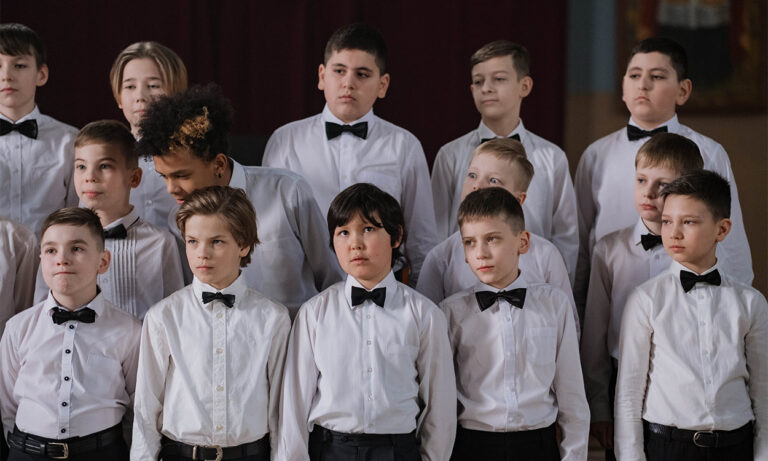The appalling racist children’s songs you won’t believe ever existed

If you don’t mind, I’d like to take you on a trip down memory lane, specifically in search of a specific discovery I recently made, involving a trove of songs that, when re-evaluated through a modern-day lens, shockingly reveal their underlying racism. Yep, you read that right, those innocent tunes from your childhood are, in fact, teeming with racial insensitivity.
As I reflect on my early years in Italy during the early 2000s, a vivid memory emerges. It was during those formative years in primary school that I found myself grappling with a confounding question: Why were we compelled to sing songs of such a dubious nature? And why was I faced with the unsettling choice of either joining in or facing the ominous prospect of a ‘time out’?
My quest for answers led me into a deep dive focusing on the racist songs we sang in primary education. Brace yourselves, for the roster of these deeply disturbing tunes, is nothing short of staggering.
Il Pianto di Zambo
One of the first songs I delved into was ‘Il Pianto di Zambo’, which repeatedly uses a racial slur like the N word while describing the “tukul,” which is a typical house in East Africa with a circular floor plan and a conical thatched roof. The song plays on the assonance of “your behind” along with the proverbial “physical attributes”—the “big finger”—of African men.
I Watussi
The song ‘Siamo I Watussi’ is often criticised for its racist and stereotypical portrayal of the Watusi people, an ethnic group primarily living in the Great Lakes region of Africa, including parts of Rwanda and Burundi. The controversy surrounding the song stems from several factors.
First off is a stereotypical depiction. The song perpetuates harmful stereotypes about African people, portraying them in a simplistic and derogatory manner. It reduces an entire diverse group of people to a caricature, reinforcing harmful prejudices.
Next is the persistent cultural appropriation. The song uses African culture and imagery in a way that is seen as appropriative and disrespectful. It takes elements of Watusi culture out of context and uses them for entertainment without understanding or respect for their cultural significance.
While writing this article, I sat down with Corrine, a 55-year-old Black woman from the Caribbean, nurse, and mother of three residing in London. Corrine has never left her hometown and during our conversation, we delved into the topic of whether she had ever encountered any form of racism during her childhood at school, particularly through seemingly “innocent” childhood songs. Her response was quite clear.
“Absolutely!” she told me. “My mother used to get quite upset with my siblings and me when we returned from school. We lived near Croydon back then, and my primary school was still separated by gender, with opposite entrances for boys and girls. Our teachers would frequently have us sing ‘Ten Little Monkeys’, and I couldn’t quite grasp why it was problematic until one day, my mother explained it to us.”
Corrine explained that the original song depicted ten little Black boys who, by the end of the song, were all portrayed as deceased. Over the years, the song underwent a name change to ‘Ten Little Monkeys’, but the dark origin stayed with it. “From that day on, my siblings and I never sang that song again, and I have passed on that knowledge to my own children, even to this day.”
Eenie Meenie Miney Moe
Oh, the beloved game of ‘Eenie Meenie Miney Moe’. It was all fun and games until you discovered that the original version included a racial slur. Yep, it wasn’t “catch a tiger by the toe” but something far more offensive. Now, when you reminisce about those playground days, you’ll look back on this particular rhyme less fondly.
@theantiyogi How not to raise a racist “Eenie meenie miney moe” THIS NURSERY RHYME IT NEEDS TO GO #racistcheck #blackhistory #outside #nurseryrhymes #educate #blm
♬ original sound - Aaryn Elan Doyle
Jamaican Farewell
‘Jamaican Farewell’ is a ditty that romanticises the notion of a tropical island getaway. But beneath the steel drums and swaying palm trees, it perpetuates cultural appropriation with lines like “Miss-a one mango from de tree.” Again, another example of deeply rooted power dynamics and exploitation in which kids are taught to imitate a culture in a superficial and thoughtless manner.
In hindsight, it’s mind-boggling how these songs ever made their way into the innocent realm of childhood education. But let’s not forget that acknowledging our past mistakes is the first step toward progress. So, as we cringe and shake our heads at these racist relics, let’s ensure that the next generation grows up with songs that celebrate diversity and promote understanding instead.





